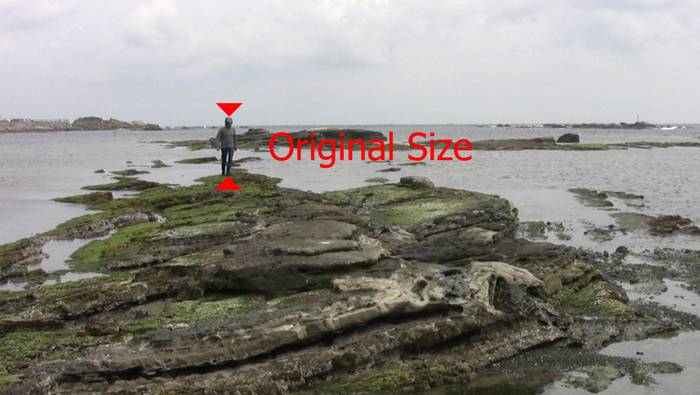On Boso Peninsula
Scene 7
Commuter trains in Tokyo are so terribly congested during rush hour that passengers have to be literally stuffed into the train by railway staff wearing white gloves. In such a situation, people from the west would resort to indulging in a form of self-expansion in order to retain their space. The Japanese, however, display the tendency to shrink under pressure – so much so that the total physical volume of the people in the country has consistently grown a bit smaller over the years, in spite of the fact that the population has grown bigger.
* That is definitely an assertion made by Hiroki Ume, who teaches Japanese Studies at the University of Port Louis. He does not accept assertions that the decrease in the gross Japanese physical volume has to do with the increase in the percentage of old people in the population.
But the train that Maille chose to take to the south was the pure opposite of overfull. His walk through the wagons of the train revealed that the entire train was empty – not even a solitary guard was to be found. That fit. Ever since Marie and his cook had become more preoccupied with each other than with him, Maille had been feeling increasingly lonely on his mission. That did not have to do only with partners or friends but also with opponents, with foes and false comrades. At first, Maille had thought that they simply did not wish to make it evident. But, in the meantime, it became reasonably clear that the real secret agent-story with its shoot-outs, punch-ups and promises actually took place in another reality – a reality that he had fallen out of, without really noticing it. He felt as though he was hanging in the air over the original story – just like a fish from a tank of Kuzuhara Taeko dangles over the surface of the water into which it will never return
Suichū yori
ippiki no uo
haneidete
tachimachi mizu no
omote awasariki
From the depths of the water
an individual fish shot
out into the heights
the water was as fast as it
to turn into a seamless surface
Perhaps, after a while in the air, the fish asks himself whether he was ever really in the water. In the best instance, he would get wings and flew thereafter – as proof of the truth of the lines by Ito Kazuhiko:
Otōto yo
wasururu nakare
amagakeru
toritach omoki
naizō motsu o
My younger brother
never should you forget:
The lightest of birds
floating in the skies
have heavy inner organs
Poems and German translation from: «Gäbe es keine Kirschblüten…». Stuttgart: Reclam Verlag, 2009. S. 151 resp. 187. Listen to how the poems sound in Japanese.


















